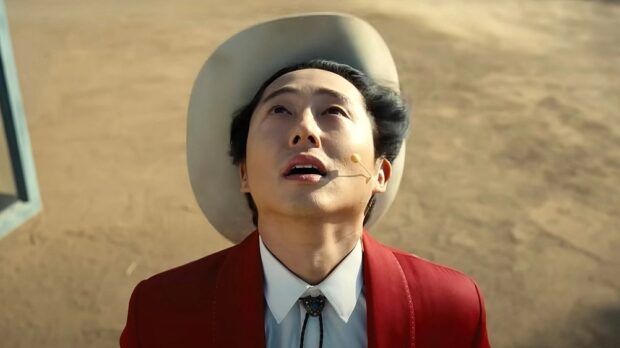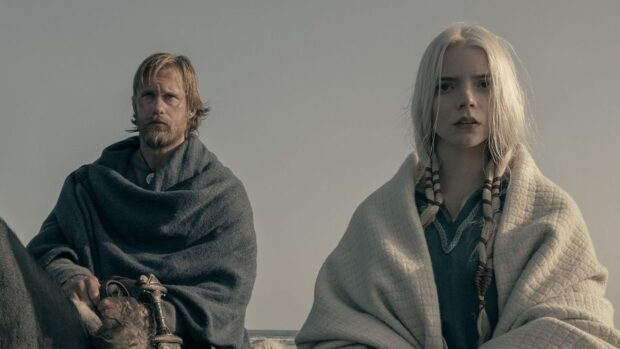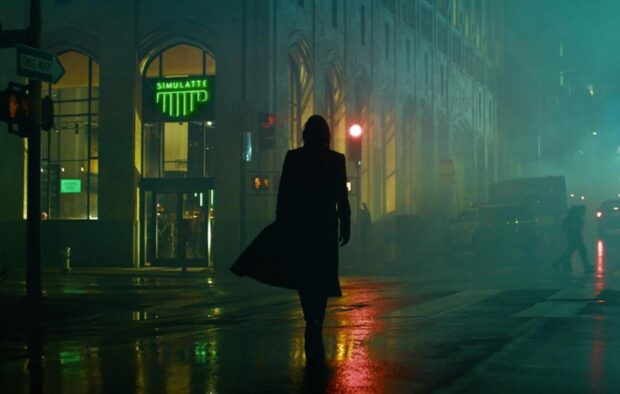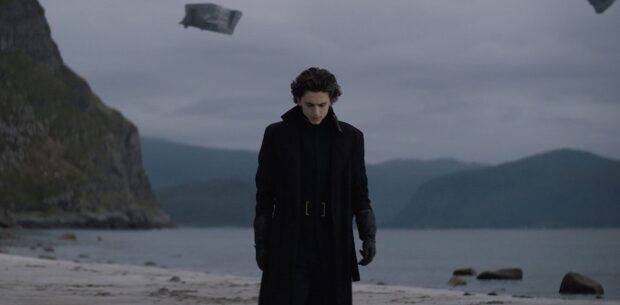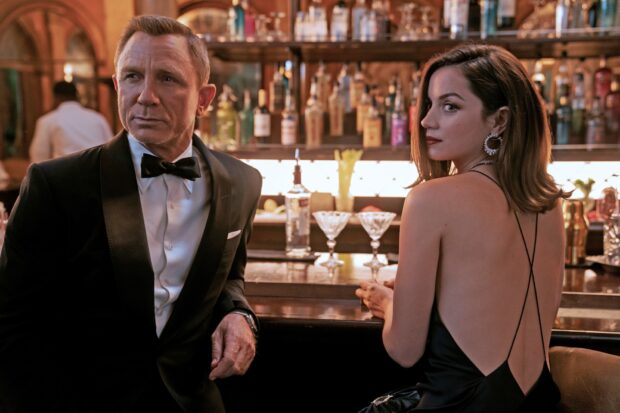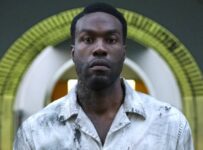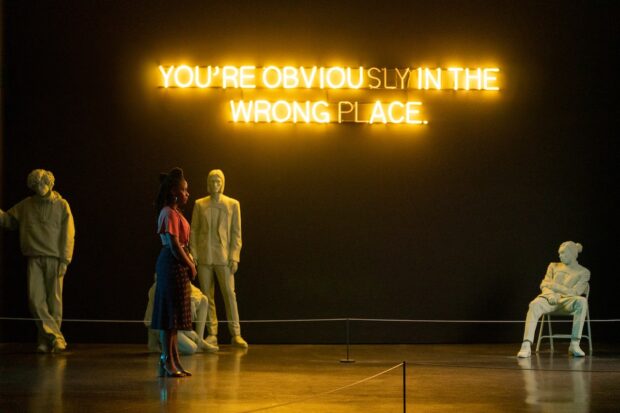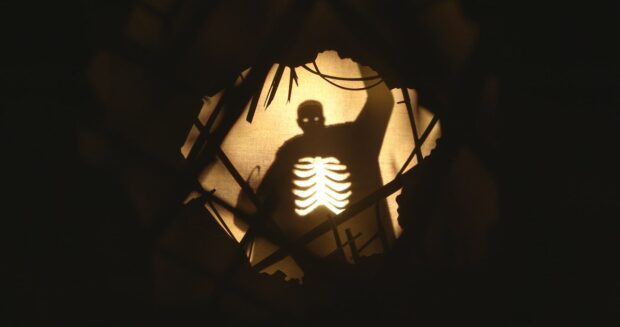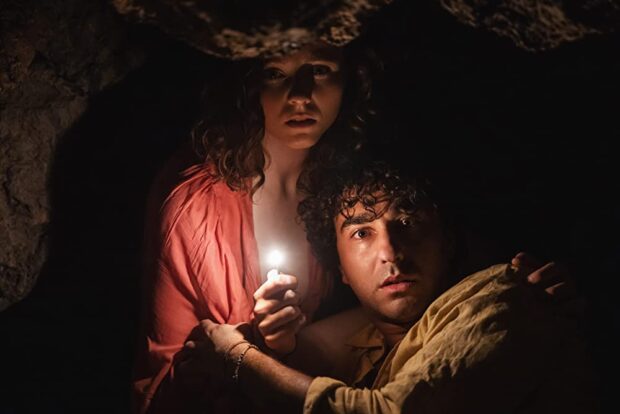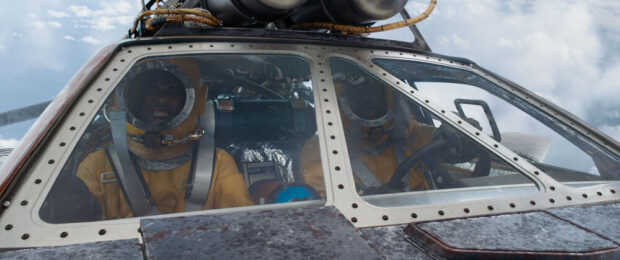When writing about any long-running horror franchise, it’s almost obligatory that you talk about its many deaths and resurrections. You might make a reference to the franchise being as ‘unkillable’ as its villain – in this case Michael Myers – and the many ups and downs so far. With HALLOWEEN ENDS, requel series director David Gordon Green ponders the very nature of life and death. Sort of.
Set several years after the events of the critically reviled Halloween Kills, the story opens on a hitherto unseen moment from Halloween night in 2019. Corey Cunningham (Rohan Campbell) is babysitting, but when tragedy strikes the town blames him in perpetuity. Several years later, he meets Allyson Nelson (Andi Matichak) through her grandmother Laurie Strode (Jamie Lee Curtis) and the pair immediately fall for each other. Yet Laurie begins to suspect something is rotten in the state of Corey. If we’ve learned anything from the Halloween films, it’s to always listen to Laurie.
In Halloween Kills, the people of Haddonfield thought they could stop Michael by committee, and David Gordon Green seemed to think they could make a Halloween film in the same fashion. To his credit, he is consciously trying for something different here, this time focusing on the journey of a different killer. In some ways this makes it more akin to the non-canonical Halloween III: Season of the Witch (1982), although Green keeps his ties to the main series.
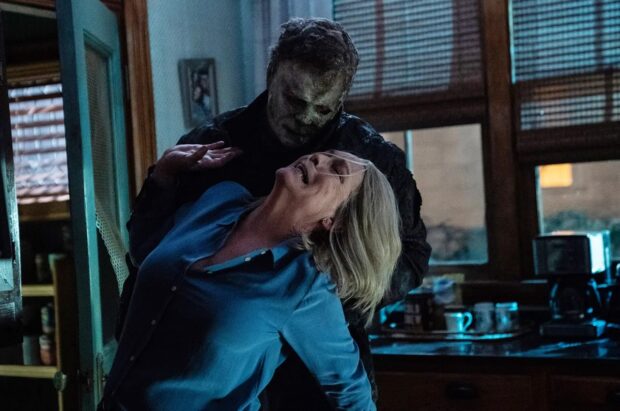
It’s a curious mix of styles though. Mostly eschewing a reliance on the traditional villain, Green takes his time in a leisurely first hour. Swinging from 80s teen romance to Henry: Portrait of a Serial Killer, often in the same montage, one has to admit that we’ve never quite seen Halloween attempt something on this level. Through Laurie’s memoirs, the film asks some pretty big questions about the nature of evil, the notion of collective trauma, and how the absence of a villain can lead people to look for one. (You could probably read this as a commentary on the last few years of divisive US politics, but that would give it too much credit).
Yet Green – along with co-writers Paul Brad Logan, Chris Bernier and Danny McBride – fail to satisfactorily answer any of these puzzles. Caught between the old and the new, it becomes clear that in the attempt to make something new, the film almost forgets that it is part of a franchise. Scrambling to restore Michael Myers to the foreground, the film slides into a needlessly violent denouement. Yes, this is par for the course (and aimed at servicing the fans who whoop and cheer and every dismemberment), but it only exacerbates the feeling that the last hour of the film is an afterthought.
So, as HALLOWEEN ENDS literally carries the battered corpse of itself to a disposal unit, one wonders if there’s any life left in the old guard yet. For a franchise that has proven to be remarkably resilient over the last 44 years, Green’s latest finale perhaps proves that it’s time for Michael to go to the grave. At least for a while anyway. Halloween ends – and not a moment too soon.
2022 | USA | DIRECTOR: David Gordon Green | WRITERS: Paul Brad Logan, Chris Bernier, Danny McBride, David Gordon Green | CAST: Jamie Lee Curtis, Andi Matichak, James Jude Courtney, Will Patton, Rohan Campbell, Kyle Richards | DISTRIBUTOR: Universal Pictures | RUNNING TIME: 111 minutes | RELEASE DATE: 13 October 2022 (AUS), 14 October 2022 (US)


